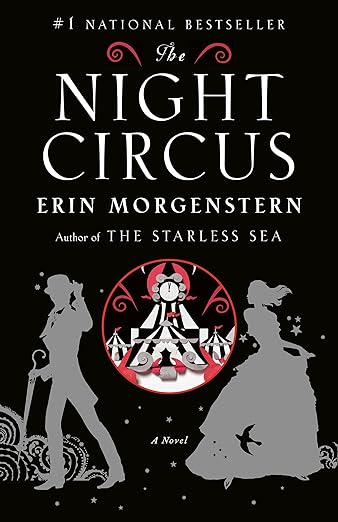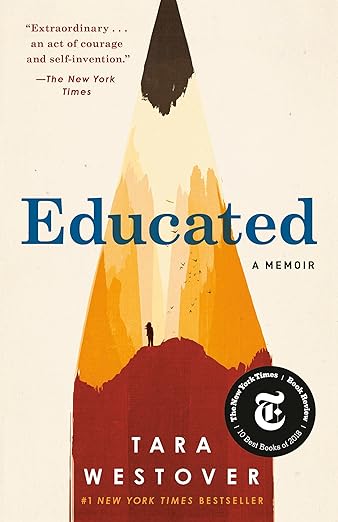Book acknowledgements are a section in a book where the author expresses gratitude and appreciation to individuals or institutions who contributed support, guidance or inspiration during the writing and publishing process. It typically appears at the beginning (academic books) or end of a book (fiction and non-fiction).
After reading this post, you will understand the purpose of book acknowledgements and their role in expressing gratitude to those who contributed to the creation of a book. You will learn how acknowledgements can create a personal connection with readers by sharing details of the author’s journey. Additionally, you will discover how to tailor acknowledgements based on the book’s genre, whether fiction, non-fiction or academic, ensuring the tone and structure align with the nature of the work. Last, practical guidance on structuring acknowledgements and examples will help you write your acknowledgements effectively.
- Purpose of book acknowledgements
- Genre-specific considerations when writing book acknowledgements
- Templates for genre-specific book acknowledgements
- Structure of book acknowledgements
- Order of book acknowledgements
- Who to include in your book acknowledgements?
- Examples of acknowledgements from real books
- Sample book acknowledgements
- Mistakes to avoid in book acknowledgements
- Using professional editing services to polish you book acknowledgements
What is the function of book acknowledgements?
Acknowledgements in books have several important functions. First, the primary purpose of acknowledgements is to express gratitude. Authors use this section to thank individuals and entities who have contributed to the creation and success of the book. Moreover, acknowledgements recognise the contributions of various people involved in different stages of the book’s creation.
Furthermore, acknowledgements create a personal connection between the author and the reader. For instance, by sharing insights into the author’s journey and the people who supported them, readers gain a deeper understanding of the book’s context and the author’s motivations. In addition, in academic and professional books, acknowledgements can be a way for authors to recognise colleagues, institutions and experts in the field. This, in turn, helps build and maintain professional relationships within the author’s academic or industry community.
What are genre-specific considerations when writing book acknowledgements?
Fiction book acknowledgements
- Thank your beta readers. If you had beta readers who provided feedback on your manuscript, acknowledge their insights.
- Next, recognise your writing community. If you are part of a writing group or community or work with a writing buddy, acknowledge their role in your writing journey.
Non-fiction book acknowledgements
- Thank experts or interviewees. If you conducted interviews or consulted experts for your non-fiction work, express your appreciation for their time and expertise.
- Additionally, mention funding or research support. If your non-fiction book involved research or funding, acknowledge the organisations or institutions that supported your work.
Academic book acknowledgements
- Thank your advisers and mentors. In academic texts, it is crucial to acknowledge your advisers, mentors or anyone who guided you in your research.
- Next, acknowledge funding sources. If your academic work received grants or funding, acknowledge the sources that made your research possible.
Self-help or inspirational book acknowledgements
- Thank those who shared stories, if your book includes personal stories or experiences.
- In addition, express gratitude to inspirational figures. If your work is in the self-help genre, acknowledge individuals who inspired and motivated you.
Templates for genre-specific book acknowledgements
Here are a couple of examples of effective acknowledgements from different genres:
Example 1: Book acknowledgements in a fiction novel
I would like to express my deepest gratitude to my family for their unwavering support throughout this journey. To my spouse, who endured late nights and countless revisions with a smile, and to my children, who inspired me with their boundless imagination.
A special thanks to my literary agent, [agent’s name], for believing in this story and championing it tirelessly. The editorial team at [publishing house] deserves applause for their insightful feedback and dedication to shaping this manuscript.
Heartfelt thanks to my beta readers, [beta reader 1], [beta reader 2] and [beta reader 3], whose constructive criticism strengthened the narrative.
This book would not be the same without the exceptional cover design by [designer’s name] and the captivating illustrations by [illustrator’s name]. Their creativity brought the story to life.
Finally, to the readers who embark on this adventure with me, thank you for giving these characters a home in your imagination.
Example 2: Book acknowledgements in an academic research book
My sincere appreciation goes to my academic adviser, Professor [adviser’s name], whose guidance and expertise were instrumental in shaping the research direction of this book. The insightful feedback from my research collaborators, [collaborator 1] and [collaborator 2], enriched the content and strengthened the arguments.
I extend my gratitude to the [funding organisation] for their generous support, without which this extensive research would not have been possible.
Special thanks to my family for their patience and understanding during the long hours spent immersed in academic pursuit. To my colleagues at [university department], your intellectual camaraderie has been a constant source of inspiration.
Last, to the scholars who paved the way in this field, your groundbreaking work laid the foundation for this exploration.
How to structure book acknowledgements?
- Start with personal acknowledgements, including family and friends.
- Next, move on to professional acknowledgements, such as editors, agents and others who contributed to the development and publication of your book.
- Include specific mentions of people who played a significant role or provided exceptional support.
- Group individuals or organisations together if they share a common role, but ensure each is recognised.
- End your acknowledgements with a gracious closing, expressing your gratitude once again.
- Last, remember that your acknowledgements are a personal reflection of your journey, so tailor them to your unique experiences and relationships.
How to order your book acknowledgements?
Here are some general guidelines on how to order acknowledgements and who to include.
#1 Personal acknowledgements
- Family and friends: Start with personal acknowledgements, including family and close friends who supported and encouraged you during the writing process.
#2 Professional acknowledgements
- Editors and agents: Mention the professionals who directly contributed to the development and publication of your book, such as editors, literary agents and publicists.
- Beta readers: If you had beta readers who provided valuable feedback, consider acknowledging them here.
#3 Research and academic acknowledgements
- Advisers and mentors: In academic or research-oriented books, acknowledge advisers, mentors or academic peers who played a role in shaping your work.
- Research collaborators: If you collaborated with others on research, mention them.
- Funding sources: Acknowledge any grants, scholarships or institutions that provided financial support for your research.
#4 Inspirational acknowledgements
- Literary influences and inspirational figures: If your work is influenced by other authors, mention them. Acknowledge individuals or figures who inspired your work or provided motivation.
Who to include in your book acknowledgements?
Acknowledgements are a personal expression of gratitude, and there is no one-size-fits-all approach. Therefore, you should customise your acknowledgements to reflect the unique individuals and groups who played a meaningful role in your writing journey. Here are some examples of who you could include.
Family and friends
- Parents, spouse, children or anyone in your immediate family who supported you emotionally and practically.
- Grandparents, aunts, uncles and cousins who were part of your support network.
- Finally, friends who provided encouragement, listened to your ideas or offered feedback.
Writing community
- Fellow writers, critique partners or members of writing groups who shared insights and advice.
Editorial and publishing team
- Begin with editors, proofreaders and anyone involved in the editing process.
- Additionally, if you have a literary agent, express gratitude for their role in representing and advocating for your work.
- Acknowledge individuals who read your manuscript in its early stages and provided constructive feedback.
- Moreover, acknowledge those responsible for the visual elements of your book.
Advisors and collaborators
- Professors, academic advisers or mentors who guided you in the case of academic or research-oriented books.
- Mention collaborators if your book involves joint research efforts.
- Last, remember about organisations, foundations or institutions that provided funding for your work.
Inspirational figures
- Include authors, teachers or other figures who inspired your writing.
Examples of acknowledgements from real books
Acknowledgements from The Night Circus, a 2011 fantasy novel by Erin Morgenstern
I would like to thank my literary agent, Richard Pine, and my editors, Kate Elton and Stacy Creamer, for their endless enthusiasm and clever insights. I am also grateful for the support of my friends and family. To my husband, for his patience, assistance, and willingness to brainstorm at any time. And to my brother, for his unwavering belief in this story from the very beginning.
Acknowledgements from Sapiens: A Brief History of Humankind, a 2014 non-fiction book by Yuval Noah Harari
I wish to thank my agent, Deborah Harris, who is not only an excellent agent but has also become a true friend. Thanks also to my editor, Yuval Ben-Ami, who somehow manages to be both professional and humane. I appreciate their understanding and support.
A big thank you to the many people who read and commented on the manuscript, especially Erez Yehiel and Yair Tauman. Your insights were invaluable. Any mistakes that remain are mine alone.
Acknowledgements from Educated, a 2018-memoir by Tara Westover
This book owes its existence to many people. Foremost, I am grateful to my family for their patience and kindness, and to my husband, who encouraged me. I am also thankful for the guidance of my agent, Amy, and my editor, Vanessa. Their insight and belief in this story made it what it is.



Sample book acknowledgements
| General thanks | I am deeply grateful to … My heartfelt thanks go to … I extend my sincere appreciation to … I want to express my gratitude to … |
| For guidance and support | For their unwavering support and encouragement … To my [family/friends/mentor] who stood by me … In appreciation of the guidance and wisdom provided by … |
| For professional support | Special thanks to my editor [editor’s name] for … I am thankful for the expertise of [professional’s name] in … To [agent’s name] for their invaluable assistance in … |
| Academic or research thanks | I acknowledge the contributions of [colleague’s name] in … For their scholarly insights, I thank [professor’s name] for … To [institution’s name] for providing resources and research support … |
| For collaborative efforts | This work would not have been possible without the collaboration of … I appreciate the teamwork and dedication of my colleagues, including … For the collective effort of the [project/research] team … |
| Inspiration acknowledgements | In memory of [person’s name] whose inspiration fuelled this work … To [author/artist/influential figure] whose work inspired me to … For the creative spark provided by [source of inspiration] … |
| For overcoming challenges | Acknowledging the support during the challenging moments from … Gratitude to those who helped me navigate the obstacles, especially … To everyone who believed in this project, even when faced with adversity … |
| For personal touch | With love and thanks to my [spouse/partner] for their enduring patience … To my children, who provided moments of joy amidst the writing process … For the unwavering belief and encouragement from … |
Mistakes to avoid in book acknowledgements
When writing book acknowledgements, it is crucial to avoid some common mistakes. Avoiding them may ensure your gratitude feels authentic and the texts is engaging:
Being too generic
Simply thanking ‘family and friends’ without mentioning their specific contributions can feel impersonal. Readers — and the people being acknowledged — may prefer more detailed thanks, where specific roles or support are mentioned, such as ‘Thanks to my partner for reviewing every draft.’
Over-thanking
While it is tempting to mention everyone who had even a tiny part in your journey, this can overwhelm the reader and distil your main acknowledgements. Focus on those who played a significant role in your book’s completion, such as your editor, agent or key supporters.
Using clichés
Avoid overused phrases like ‘I couldn’t have done this without…’ Instead, add personal touches to make your acknowledgements unique and memorable, reflecting your voice and journey.
Being too long
Avoid turning the acknowledgements into an exhaustive list or lengthy essay. Readers tend to skip overly long acknowledgements, so aim for 1–2 pages at most.
Inappropriate tone
Ensure the tone of your acknowledgements matches your book’s genre. A formal tone works for academic or some non-fiction works, while a personal or humorous style may be better suited to memoirs or novels.
Being insincere
Some acknowledgements may come across as overly sentimental, insincere or even forced. To mitigate this effect, aim for genuine and heartfelt thanks without excessive praise, which may feel inauthentic.
Omitting important contributors
Forgetting key contributors can lead to hurt feelings. To avoid this, make a list of who you want to thank and double-check names and roles to ensure no one is left out.
How can professional editing services help polish your book acknowledgements?
Using professional editing services can be a great way to ensure that your book acknowledgements are crafted perfectly. Various types of editing services are available, including developmental editing, line editing, copyediting and proofreading. Each type of editing focuses on different aspects of your writing, ensuring that your book is polished and error-free.
Developmental editing can help you with the structure and style of your acknowledgements, ensuring they flow smoothly and are easy to read. Next, line editing focuses on improving the overall quality of your writing, including grammar, syntax and word choice. In addition, copyediting is a more detailed form of editing that involves checking for spelling, punctuation and formatting errors. Finally, proofreading involves a final check for any remaining errors before your book goes to print.
Professional editors can provide you with valuable feedback and suggestions on how to improve your writing. In turn, this may help you to create acknowledgements that truly express your gratitude and appreciation towards those who helped you along the way.
Final thoughts
In conclusion, book acknowledgements are a significant way to express gratitude and form a personal connection with your readers. It is essential to tailor acknowledgements to your book’s genre and include everyone who played a role. By doing so, you can humanise your book, offer transparency and provide cultural and historical insights into your context.
If you are a writer and your book manuscript needs a second pair of eyes, contact me for a free sample edit (and remember to use my early bird discount). I am an experienced editor, proofreading and editing non-fiction, academic and business books.


